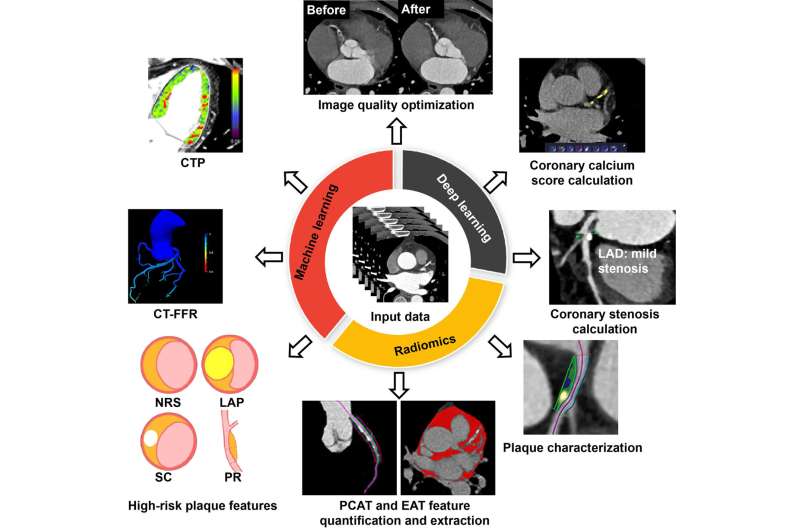This article has been reviewed according to Science X's editorial process and policies. Editors have highlighted the following attributes while ensuring the content's credibility:
fact-checked
trusted source
proofread
Artificial intelligence can help coronary CT angiography and accelerate the development of precision medicine

With the continuous progress of science and technology, artificial intelligence (AI) has become an important driving force for a new round of scientific and technological revolution and industrial change. It aims to mimic human consciousness and thought processes, continuously learn and improve, and show a response close to or even beyond a real person.
At present, machine learning, deep learning, and other AI technologies have been tried to be applied to intelligent diagnostic and decision making, image interpretation, accurate classification, and prognostication of cardiovascular diseases, which has led to broad application prospects and innovation potential.
As a safe and reliable non-invasive technique of choice for clinical screening of coronary heart disease, coronary CT angiography (CCTA) has been recommended by guidelines of the European and American societies as the use of Class 1A evidence for coronary artery disease.
In recent years, the attempts of AI to run through the whole process of CCTA have expanded the application scope of CCTA. AI has shown great potential and advantages in many aspects of CCTA, including image quality optimization, fully automated calculation, quantitative and qualitative evaluation, etc.
This review systematically introduces the standard AI techniques in the field of cardiovascular computed tomography (CT), summarizes the current research and application progress of AI in cardiovascular CT, and provides its future perspectives.
We believe that the digital and intelligent management model of cardiovascular disease is expected to improve the management level and efficiency of diseases and provide patients with more accurate, safe, and appropriate diagnosis and treatment methods.
The review is published in the journal Medicine Plus. This review was jointly published by Prof. Long-Jiang Zhang (Department of Radiology, Jinling Hospital, Affiliated Hospital of Medical School, Nanjing University) and Prof. Christian Tesche (Division of Cardiovascular Imaging, Department of Radiology and Radiological Science, Medical University of South Carolina and Department of Cardiology, Munich University Clinic, Ludwig-Maximilian-University)
More information: Peng-Peng Xu et al, Artificial intelligence in coronary computed tomography angiography, Medicine Plus (2024). DOI: 10.1016/j.medp.2023.100001





















